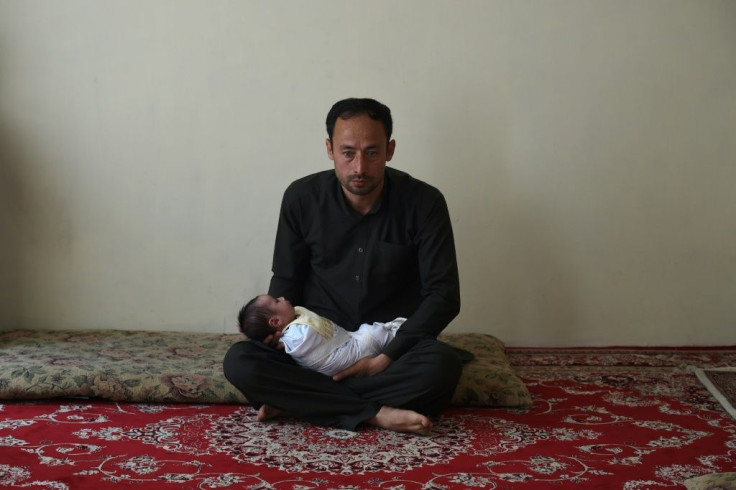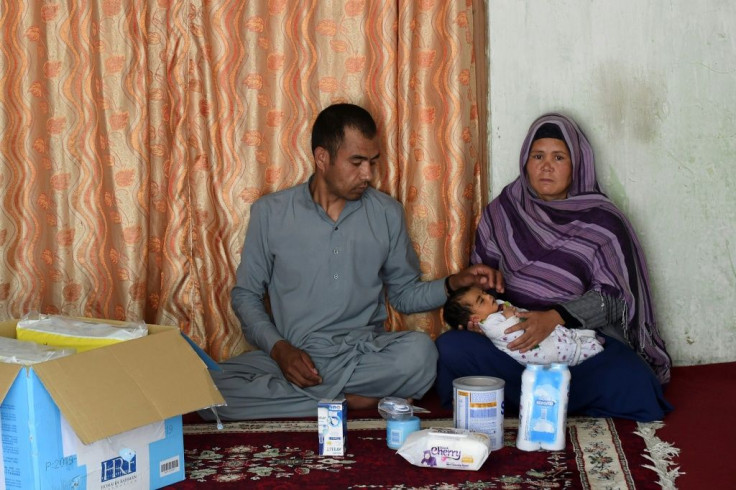Sorrow For New Afghan Parents After Hospital Attack
Zia Gul gave birth to her daughter just an hour after escaping from gunmen who rampaged through a Kabul maternity ward, and now struggles to reconcile motherhood with the trauma of the attack.
As she deals with the first days with her new daughter Roya, the sleepless nights familiar to any new parent are haunted by the gruesome May 12 attack that killed at least 24 people.
"I have nightmares every night," the 28-year-old said, sitting on a carpet in her Kabul home and cradling her sleeping daughter in her lap.
Newborns, mothers and nurses, were killed when gunmen posing as members of the security forces rampaged through the facility run by Doctors Without Borders (MSF) in an attack that shocked a country long accustomed to brutality after decades of war.

Afghan President Ashraf Ghani later pinned the blame on the Taliban, who denied any involvement, while the United States accused the Islamic State.
No group has claimed responsibility for the massacre.
"Whenever I hear a loud sound or firecrackers, I think the attackers have come to kill me," said Zia Gul from her home in an impoverished Kabul neighbourhood.
"The attack came suddenly, the attackers started shooting the babies and women giving birth."
As the militants went on their killing spree -- described by MSF as "a systematic shooting" -- doctors at the hospital helped Zia Gul and others hide.

She later managed to escape and was evacuated by security services to another facility.
An hour later, her daughter Roya was born, a blessing after suffering an earlier miscarriage.
But the joy was dulled -- her mother-in-law, who had come with her to the hospital, was killed in the attack.

Akram, 40, who only gave his first name, vividly recalls the aftermath of the horrific attack that killed his wife shortly after she had given birth to their daughter, Maryam.
Approaching the hospital bed where her body lay, he did not know the woman lying there was his wife.
"I recognised her from her feet," he said.
"I could not recognise her by her face when I saw her."
He discovered his daughter after seeing a Facebook post saying she had been evacuated to another hospital, with an accompanying picture and phone number.
For many of the new parents -- many from poor neighbourhoods in Kabul -- the aftermath of the massacre has made it even harder to make ends meet.
Zia Gul's husband is deaf, making it difficult for him to find work in normal times, she said, adding that a lockdown imposed on the capital to combat the coronavirus has made earning money even harder.
Nearly a dozen families who bore the brunt of the attack are surviving on aid given by the Relief and Emergency Fund for Afghanistan (REFA), a campaign group.
The group is helping by donating care packages, including food, diapers, clothes and other essentials, said the campaign group's head for operations in Afghanistan Behzad Ghazi.
How and who will help the survivors overcome the trauma in the long run is another question, said Lyla Schwartz, a psychologist and founder of Peace of Mind Afghanistan, an NGO.
Akram, who runs a shop, has two other sons aged six and seven and an elderly mother to take care of, and is worried about how he will raise his youngest child.
"I think (my mother) does not have the ability to take care of the child," he said.
© Copyright AFP 2024. All rights reserved.





















